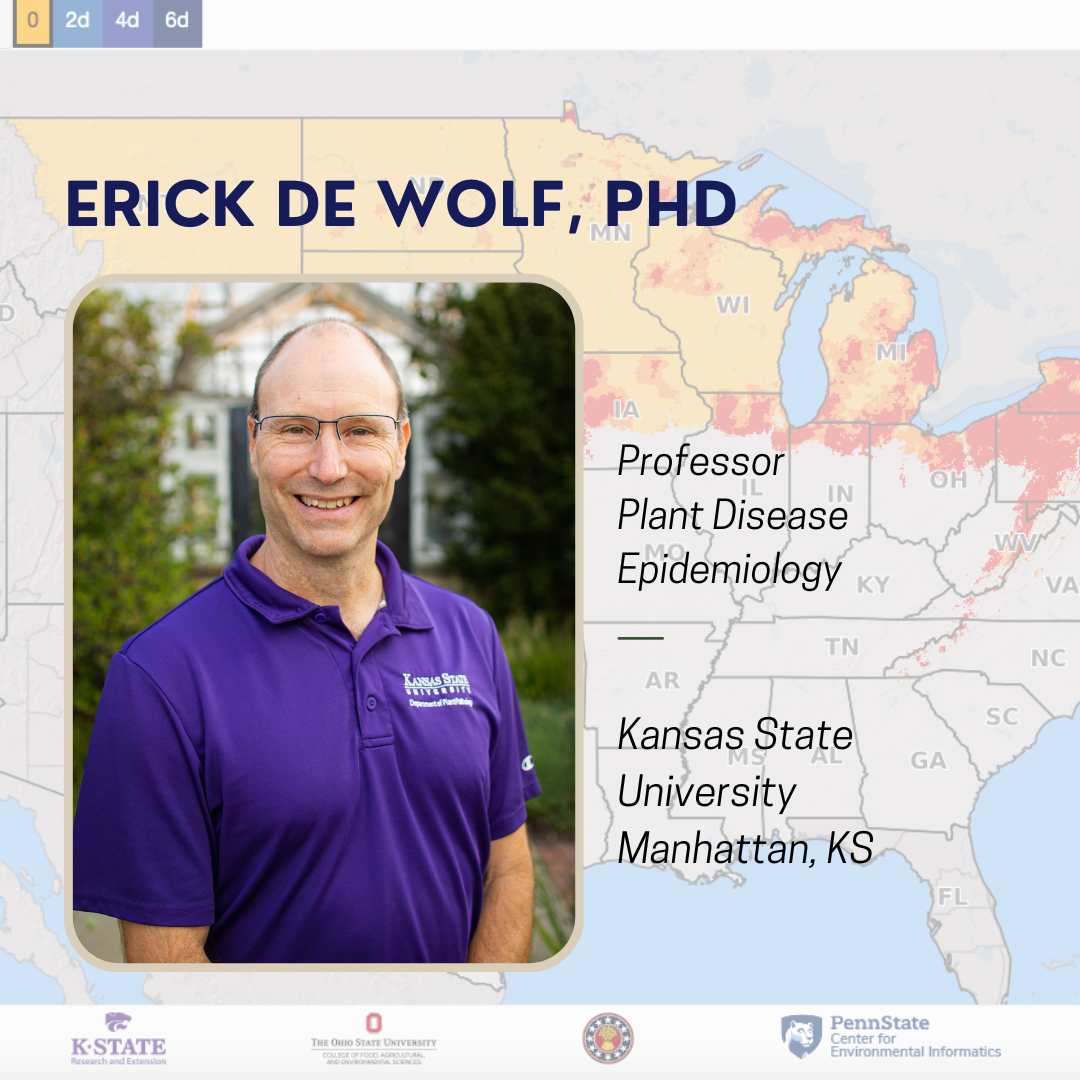Featured Researcher Bio - Erick De Wolf 2023

Meet Erick De Wolf, professor of plant disease epidemiology in the Department of Plant Pathology at Kansas State University (KSU). De Wolf has been a researcher working with the U.S. Wheat and Barley Scab Initiative since 1999. His research focuses on deploying and improving the predictive models used in the FHB Risk Tool.
Becoming a Biologist
De Wolf grew up in Kalamazoo, Michigan where he often spent time in the fields and woods near his home exploring and observing nature. At an early age he knew he wanted to pursue a career in biology. After high school, he began studying biology at Hope College. During his time as an undergraduate, De Wolf took multiple courses in botany, plant morphology, and plant pathology. He conducted an undergraduate research project under the mentorship of Dr. David Netzley, a plant pathologist. Through this mentorship, De Wolf saw opportunities to utilize his biology background to help people produce the food their communities needed to thrive.
After graduating with his doctorate degree in plant pathology from North Dakota State University in 2000, De Wolf took a post-doctoral research position at The Ohio State University in Wooster, Ohio. In 2001, he began his faculty career as an extension plant pathologist for field and forage crops at The Pennsylvania State University. He then joined KSU in 2007 as the extension specialist for small grains and forages, a position he served in up until 2019. Since then, De Wolf has transitioned into a more research and teaching based role at KSU. His research addresses many aspects of pathogen biology and disease management. He is particularly interested in the relationship between the weather associated with disease epidemics and the development of disease forecasting systems.
Making Practical Differences for Producers
De Wolf’s favorite part about the USWBSI is working with all the different researchers with diverse backgrounds and expertise all coming together to address Fusarium head blight. “I think my favorite things include seeing our research make a practical difference in the lives of so many wheat and barley producers,” said De Wolf.
The USWBSI and De Wolf recently conducted a survey regarding the FHB Risk Tool. De Wolf shared some of this year’s results:
- More than 85% of the users reported using the tool for more than 4 years. This indicates the FHB Risk Tool has become a useful resource for wheat and barley growers in the U.S.
- Most of the users are either farmers or farm advisors who use the information to make disease management decisions.
- 53% of users were interested in managing FHB in wheat, while 16% reported an interest in disease management on barley.
- Users reported that the FHB Risk Tool helped then correctly identify the risk of disease in 98% of the production scenarios this past year.
- Over 97% of users indicated the information received from the risk tool provided high or moderate value to their farm or organization.
- The 2023 survey, along with previous year’s survey results, indicates that the FHB Risk Tool’s forecasting effort exceeds $70 million annually in monetary value.
For more information about the FHB Risk Tool, please reach out to the USWBSI (nfo@scabusa.org).If you are interested in learning more about Dr. Erick De Wolf's research, visit his faculty webpage.
You can also check out the series of previous USWBSI Featured Researchers.
